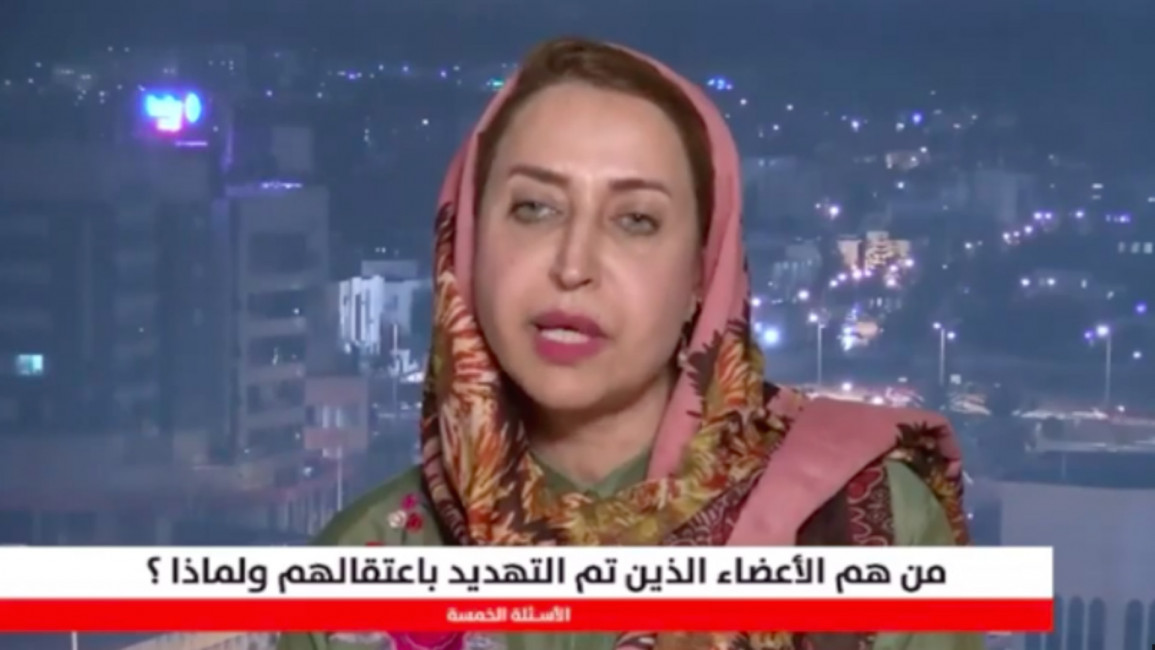Fears for abducted Libyan politician ‘growing by the day’, warns Amnesty
The fate of a Libyan MP abducted from her Benghazi home by dozens of masked gunmen after criticising the current offensive on Tripoli is of grave and growing concern, Amnesty International said on Friday.
Siham Sergiwa is thought to have been abducted in the early hours of 17 July by an armed brigade affiliated with General Khalifa Haftar’s Libyan National Army.
The horrific incident “illustrates the acute dangers facing publicly active women in Libya who dare to express criticism of militias,” said Magdalena Mughrabi, Middle East and North Africa Deputy Director at Amnesty International.
“Siham Sergiwa appears to have come under attack as punishment for peacefully expressing her opinions and criticising the Libyan National Army’s offensive on Tripoli,” said Mughrabi, adding that fears for Sergiwa’s safety are “growing by the day”.
Twitter Post
|
Hours before her kidnapping, Sergiwa had given an interview to Al Hadath TV, in which she criticised the Haftar-led offensive on the capital Tripoli, which have left at least 1,000 people dead and some 5,000 wounded, according to an official UN estimate in July.
Mughrabi said Haftar’s LNA, who control Benghazi and most of east and south Libya, must ensure Sergiwa’s “immediate and unconditional” release, demanding it stop attacks against civilians.
“No one should be targeted on account of their political background, affiliation or opinions. Pending her release, they must reveal her fate and whereabouts and ensure she is protected from all forms of torture and other ill-treatment,” said Mughrabi.
Sergiwa’s husband, Ali, was shot in the leg, and her 16-year-old son, Fadi, was badly beaten during the raid on the family’s home. Ali is still in hospital and has not been allowed visitors, the family has said.
A family member told Amnesty how the lights cut out in the whole area before the raid.
“They came inside the house and told us to get down. They shot dad in the leg and beat him. I tried to stop them and they hit me, too,” they said.
 |
Women in public roles who dare to speak out against lawlessness and militias today can be silenced at any cost - Amnesty |  |
An eyewitness said the militiamen spoke with a Benghazi accent and were driving cars with “military police” written on them. After the raid, the words Awliya al-Dam, meaning “Avengers of Blood”, were found graffitied on a wall inside the house.
Awliya al-Dam is the name of a militia affiliated with the LNA, whose members are relatives of people killed fighting so-called “terrorists” in Benghazi since 2011.
Sergiwa’s case is the latest in a string of Libyan women targeted with attempted killings, abduction, physical and sexual assault and harassment, and intimidation campaigns since 2014.
In-depth : A quiet conflict is raging in Libya's desertic south
At least three Libyan women have been assassinated since 2014 for their activism or political work: MP Fariha al-Barkawi, and human rights activists Salwa Bugaighis and Entisar El Hassari.
Women who do choose not to follow social norms or challenge gender stereotypes are particular targets of such crimes, said Amnesty.
“Siham Sergiwa’s abduction demonstrates the tragic consequences of the Libyan authorities’ failure to protect activists and vocal critics from brutal retaliatory attacks,” said Mughrabi.
“Women in public roles who dare to speak out against lawlessness and militias today can be silenced at any cost,” she added.
Follow us on Twitter: @The_NewArab



